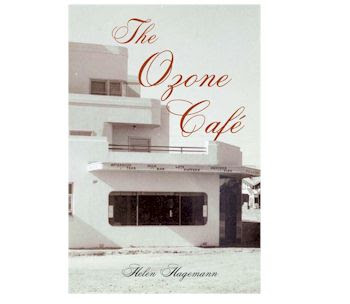 The Sisters' Song
The Sisters' Song by
Louise Allan
My rating:
5 of 5 stars
A Book on a Grand Scale
Every now and again a book comes along that is exceptional, a story that allows you to sink beyond the page into the lives of the characters, their heartaches, failures, warmth and sincerity. Such is
The Sisters' Song a debut novel by Louise Allan.
It's a family saga, set in Tasmania in the 1930s-90s and looks at the lives of two women, sisters Ida and Nora. These two women's lives are created as binary opposites. Ida is the traditional woman married to Len and wants children, while Nora longs for fulfillment in a singing career. However, their ambitions are thwarted by circumstance and both sisters' dreams and aspirations remain unfulfilled throughout the novel. Ida has three miscarriages never bearing a child full-term, while Nora's talent (in its infancy) is waylaid by falling pregnant to a dashing Italian "Lothario" named Marco. Being subjected to the wiles of the Italian who is married, it is career over for Nora! She returns to Tinsdale, to marry Alf (pre-stepfatherhood to Marco's son Ted), and to a lonely farm life in isolated Tasmania. With all her hopes and dreams dashed Nora remains embittered throughout most of her life. We can put this down to the temporal climate of the mid-twentieth century when a woman was objectified - her only role and status - of being there for pleasure, marriage and or pro-creation.
To my mind,
The Sisters' Song is an important feminist text for the 21st Century, a template for the GenYs and GenZs to imbibe an era when women were mainly stereotyped in roles of housewife and mothers (although there were exceptions to the rule). Granted, this novel does not set out to make a cultural statement, yet at the same time the song rings loud and clear. As contemporary readers we are taken back to a time of pre-women's liberation, to Nora, a woman who wasn't fully encouraged, who wasn't given hope or familial support to be different, to be independent or career minded. And we are taken back to the familiar tune of the many, like Nora's family, who failed her talent. I shudder to think of where we would be today if we didn't have the current advantages of career, equal workplace and educational opportunities.
As a reviewer, I don't need to tell you the
whole story that is for you to read. I also prefer not to repeat the accolades
of another four to five prominent reviewers, including Nicole Melanson (NSW)
and Monique Mulligan (WA) as I see this exceptional novel as a gift to women.
It is a reminder of the woman's struggle, the dark ages of electric shock
therapy, of mental illness, of unrecognized depression, and of an unflinching
bond between sisters, created by Ida.
There are many
other layers in this novel: themes of love, courage and forgiveness, evocative
figurative language, well-drawn protagonists and minor characters, a strong
emotional engagement for the reader, and last but not least, a music and
singing motif that is so heartfelt you can almost hear it.
Louise Allan
grew up in Tasmania, a relatively underpopulated, rugged and cold island off
the south-east coast of mainland Australia. She studied Medicine at the
University of Tasmania and went on to become a GP, before moving across
the country to Perth. She worked in the field of breast cancer until she ceased
practising medicine in 2010 and took up writing. Allan’s novel came from a
short story she wrote in 2010, which she knew had a much longer story attached.
In 2012, she picked it up again, and it took six years and countless drafts
until in 2014, her novel was awarded a Varuna Residential
Fellowship. In the same year, the manuscript was shortlisted for the City of
Fremantle—TAG Hungerford Award.
Alongside
her characters, this major effort by Allan has been justified; a woman finding
her vocation as a writer, securing an agent and publisher Allen & Unwin
(2018).
Disclaimer: My thanks to Allen & Unwin for giving me the opportunity to read a great book and likewise to review.
Helen Hagemann (c) 2018
View all my reviews



























